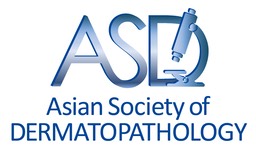The dermatopathology trainee will be exposed to:
- Routine dermatopathology reporting :
- Sign-outs are performed daily. Fellows will be rostered to the respective dermatopathologists signing out for the day, and will examine the slides over the multi-header with the reporting pathologist. The fellow may also observe tissue specimen grossing, tissue processing, embedding, sectioning, and staining.
- Special stains:
- NSC histopathology is well-equipped with a wide range of histochemical and immunohistochemical stains.
- Direct immunofluorescence
- Lectures, tutorials, and clinicopathological conferences:
- At NSC, there are monthly histology slide quizzes and clinicopathological conferences.
- An intensive 2-day dermatopathology workshop is held annually at NSC. This workshop, which is usually held between July and August, covers a wide range of dermatopathology topics, ranging from inflammatory conditions to tumours.
- Meeting up with supervisor
- Regular meetings with the supervisor will be arranged to discuss difficult cases or answer queries that the fellow might have.
- Exposure in anatomical pathology
- There will be opportunities for fellows keen to increase their understanding and exposure to basic anatomical pathology to be attached to the pathology department of a tertiary hospital in Singapore for a month.
- Self-directed study
- The library at NSC houses a wide range of dermatology and dermatopathology journals, and text books, and is a rich resource for the dermatopathology fellow. Well-organized teaching slide boxes are also available for referencing and learning.
- Research study
- The fellow is encouraged to participate in research projects and be the principal investigator of a dermatopathology-related study
